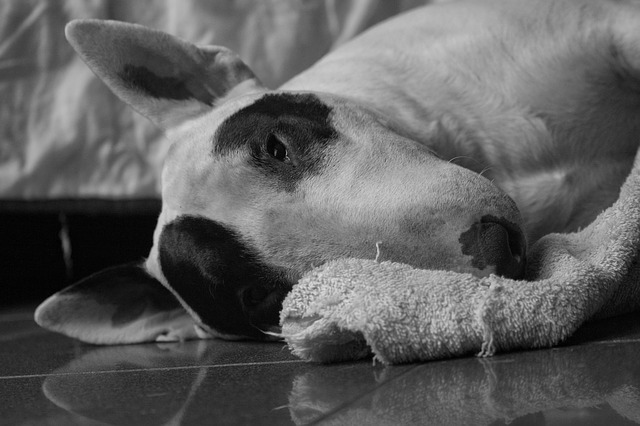
Your dog’s renal system removes waste from his blood and helps produce red blood cells. Kidney cancer can lead to acute renal failure, so early detection and treatment is important and will lead to a better prognosis.
Kidney tumors are not often found in dogs, but when they are, they’re usually found in middle-aged and older dogs and require the affected kidney to be removed. Malignant renal tumors can be found in one or both kidneys, either developing in the kidney or spreading from other areas of the body.
Symptoms of Kidney Cancer in Dogs
Some dogs won’t show any symptoms until the disease begins to grow. You may notice:
- Increased thirst
- Frequent urination
- Blood in the urine
As his kidneys begin to fail, your dog may also have:
- Loss of appetite
- Vomiting
- Weakness
- Depression
- Dental disease
Causes of Kidney Cancer in Dogs
Not much is known about what causes kidney cancer in dogs. The cancer doesn’t prefer a breed or gender, with the exception of German Shepherds, who are predisposed to a syndrome known as renal cystadenocarcinomas.
Diagnosis of Kidney Cancer in Dogs
If your dog is acting strange, take him straight to the vet. Many of the symptoms associated with kidney cancer aren’t specific to the disease, so it’s necessary for a vet to take a look at him to accurately diagnose what is causing his odd behavior.
Blood work and a urine sample are typically taken to get an idea of how your dog will tolerate treatment and get an idea of his overall health. If kidney cancer is found your vet may want to do a needle aspirate or biopsy of the tumor. The following may be conducted to determine the extent of the cancer and size of the tumor:
– Chest radiographs or x-rays
– Ultrasound of the abdomen
– Complete blood cell profile
– Advanced imaging, such as a CT or MRI
Depending on the results, further tests may be necessary to ensure that other organs are healthy. The veterinarian may also perform function tests on the unaffected kidney.
Treatment of Kidney Cancer in Dogs
Treatment varies depending on what your vet has gathered during diagnosis:
Surgery
Surgical removal of the affected kidney is the recommended for most renal cancer that has not spread to other parts of the body. Surgery is only a viable option if the second kidney is functioning properly and if your dog is strong enough to withstand the operation. Your dog can live a normal life with one kidney, and surgery may remove the cancer entirely, depending on the extent of the tumor. The cancer may still come back or metastasize even months after surgery.
Chemotherapy
If the cancer affects both kidneys or has spread surgery will not be very effective, so chemotherapy may be used to help combat the spread of the tumors and prolong your dog’s life. Your vet can give a combination of drugs, limiting the cancer’s spread to other organs. However, there is little documentation to support chemotherapy’s effectiveness against most primary renal tumors.
Supportive Care
The job of your dog’s kidneys is to remove waste from the blood. When the organ fails or does not function at full capacity, toxins build up within the body and will need to be removed by other means. IV fluids help remove those toxins. Additional care may be recommended to reduce pain, ensure hydration, and treat anemia, depending on how quickly the cancer has spread.
Recovery of Kidney Cancer in Dogs
If your dog successfully underwent surgery and had the affected kidney removed, your veterinarian will provide you with aftercare instructions to follow. Pain medication helps keep your dog comfortable during recovery, and antibiotics prevent infections. Follow all your veterinarian’s instructions for giving medication, and limit physical activity over the next two or three weeks to make sure that the surgical site heals properly. General blood work and ultrasounds or radiographs may be recommended as follow ups to monitor metastatic disease.
A combination of home and veterinary care is important, whether or not surgery was performed. Though prognosis is poor for most malignant renal tumors, particularly those that affect both kidneys, you may still maintain your dog’s quality of life for the remaining months with your veterinarian’s help.
